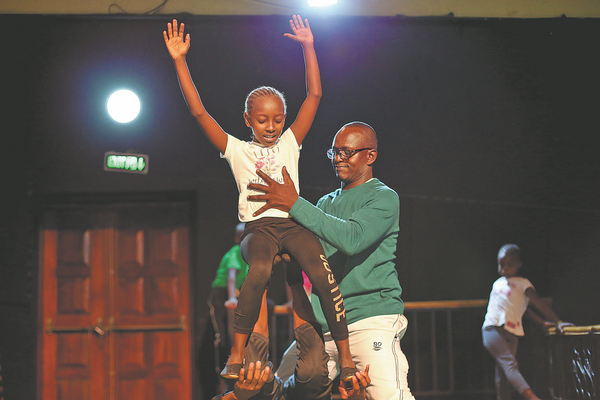

"I believe that acrobatics is a career like any other, and that being professionally taught by Kenyan and Chinese acrobats can help many young people who are facing unemployment today," Kavita said.
"I plan to return to China to learn how to run a school like the one in Guangzhou. I hope to get a sponsor — government or private — to help me establish the school, as many young people admire what we do, but lack facilities for the proper training to make acrobatics a professional career."
He believes that acrobatics in Kenya, and Africa in general, pays well if performers are professionally trained. He has met many young people who want to train as professionals, but lack the facilities to do so. Instead, they end up staging impromptu performances at markets or major road intersections, but make little money from them.
Kavita also holds training sessions for schoolchildren during weekends, and is available to take private sessions with individuals, schools or organizations.
Eric Musyoka, one of Kavita's students, also feels that a decent living can be made from acrobatics, as long as professional training is given.
"Acrobatics has good potential to grow in Kenya, especially among jobless young people, because it can help them avoid lawless behavior. Acrobatics has changed my life, as apart from performing in various areas of Kenya, I have managed to travel to a number of countries, including a recent trip to Spain," Musyoka said.
Qiu Quanlin in Guangzhou contributed to this story.
Contact the writers at otiato@chinadaily.com.cn